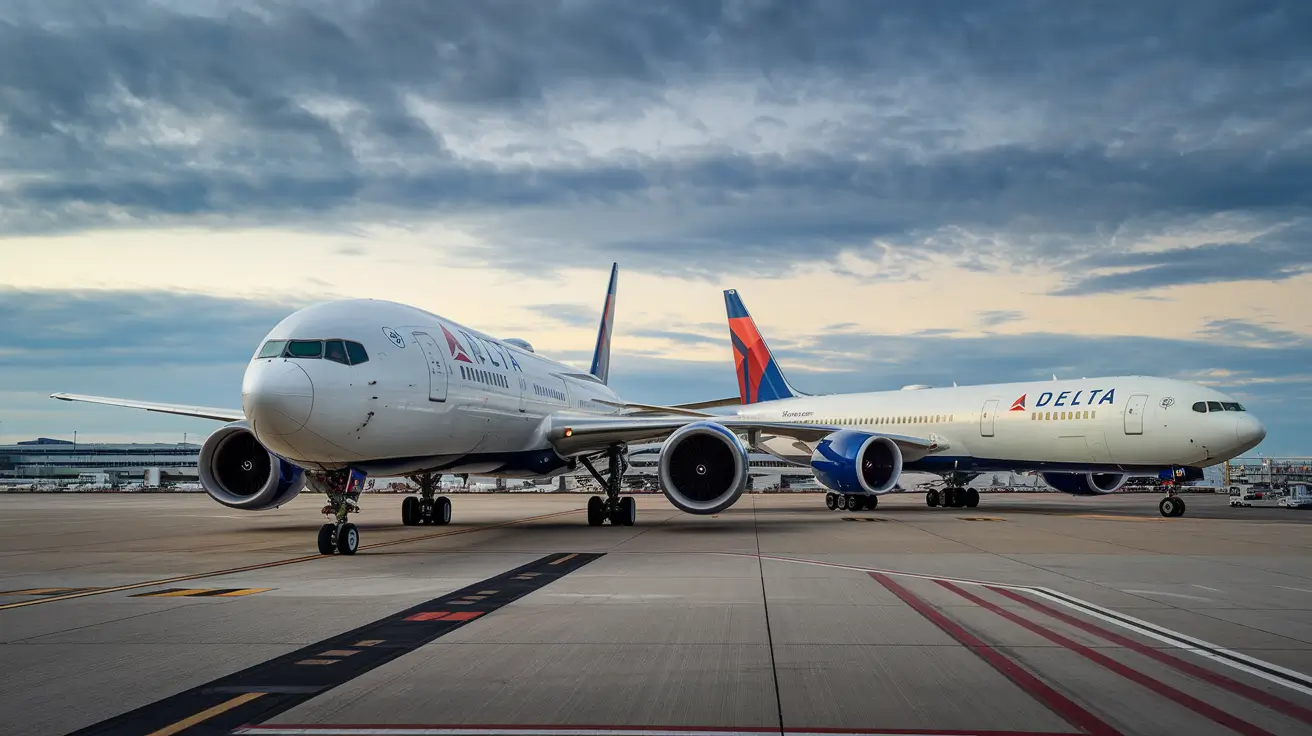What will Delta replace the 777 with?

What Aircraft will Delta replace the 777 with?
Since Delta first began flying the Boeing 777 in 1999, it has been a mainstay of their widebody fleet choice. Delta could provide competitive service on important, long/ultra-long-haul commercial routes across the Atlantic and Pacific, as well as from the US to Africa and India, because of the 777's range, capacity, and efficiency.
Like other airlines,Delta Airlines has been running this aircraft for more than 20 years, but the age of its 777s is approaching retirement. With an average age of over 19 years, the Boeing 777 fleet consists of 19 somewhat ancient aircraft. Delta has been researching which jet or which of the more modern and efficient widebody aircraft is now on the market to replace the 777 in the next few years.
The Airbus A350 XWB
Airbus A350-900 and -1000 are another family of airplanes that can be considered as a perfect replacement for the 777s of Delta. Thus, over the last few years, Delta has aggressively ramped up its A350 fleet, and it undoubtedly regards this aircraft as a key player in its future widebody strategy.
A350 gives Delta the best operating reach, fuel economy, and comfort to its passengers at 25% less expenses for operations and other advanced technology like lighting systems and higher pressure in the cabin. I agree with @dennis, who pointed out that Delta already deploys the A350 on several key transatlantic and transpacific routes and will surely consider the plane's 777 replacement on many such routes in the future.
While the A350-900 could take about 300 passengers, the A350-1000 can take over 360 passengers, so both options are capable of replacing the 777’s in terms of capacity. With current orders for 25 A350-900 and 5 A350-1000, one can expect a gradual replacement of many of Delta’s older 777s, particularly in the most money-making Transatlantic network.
The Airbus A330neo
besides the A350 family, delta is also interested in the next-generation Airbus A330neo as another substitute for the 777 aircraft. Thus, the A330neo is not as technologically advanced or long-range as the A350 but it is 25% more efficient than old-generation A330 aircraft, which have many elements from the A350’s developments.
It has ordered 35 A330-900 Neos that are set to join the current fleet of over 40 A330-200 and A330-300s already in Delta’s fleet. As it turns out, many US gateway cities to Europe are conveniently nestled in the sweet spot of the A330neo’s range capabilities; the aircraft therefore appears to be a perfect fit to replace Delta’s aging 777s for mid-haul transatlantic operation.
The A330neo is a 2-class airplane that has around 260 people on board; it also provides good capacity if speaking about the 777 replacement. Anticipate Delta to use most of the new A330neos from New York, Boston, Atlanta, and its other major American gateway cities on secondary destinations in Europe as it retires its older 777s as well as A330neos.
The Boeing 787 Dreamliner
Even as it signs deals and commits big dollars to the new models of Airbus, Delta is not closing its doors on Boeing when it comes to replacing its fleet of 777s. The nine Boeing 787-9 Dreamliners that Delta has acquired came into service in 2017 and 2018.
The 787, like the A350, is an advanced aircraft that offers companies extended ranges and excellent fuel efficiency. More so, Delta deploys its first lot of 787-9 on routes between the US West Coast and Asia/Australia, which creates a new series of options for nonstop long-haul routes previously unattainable.
And with more than 280 passengers, the 787-9 will also serve well as a candidate to replace the 777 in terms of its capacity. Some of the sources provided even indicate that Delta wants 787-10s, which is the largest variant of the Dreamliner and has a capacity of up to 330 passengers, which is almost on the level of a 777 in terms of seating capacity.
Delta should still be expected to expand its 787 fleet further to replace aging 777s on other long-haul international routes in the future. WEB routes from the East Coast to Europe and from its Atlanta hub to Asia, South America, and other long-haul destinations could all see 787 substitutions for 777s over time.
This retirement timeline only applies to the 777 fleet, not to the other models and series of the company’s planes.
So when will this change for Delta, and when will it bid adieu to this aging yet dependable fleet of 777s? Late in 2019, Delta Air Lines said it planned to bring forward the schedule for the retirement of the last eight 777-200LRs by the end of the year. However, the COVID-19 pandemic and the consequent decline in travel changed all that at the onset of the year.
The following shows how the fleet composition has changed, and Delta currently has 10 Boeing 777s in its fleet as of the end of 2022. However, all of them are now 20+ years old, and though most do not have incredibly high FCs for their age, the numbers suggest that these are late-model aircraft. Aviation professionals predict the last of Delta’s 777s will be sent to the graveyard in the 2023–2025 period.
This is in line with delivery schedules for the A350, A330neo, and further 787 aircraft to be inducted into Delta. By the mid-2020 time period, more than enough new-generation Airbus and Boeing widebodies should be acquired by Delta to replace the retiring 777 capacity worldwide across the Delta network.
Look at Delta as it brings down the curtain on the record-breaking 777s that revolutionized the airline’s international service in 1999. But now that A350s, A330neos, and several 787 Dreamliners are on the cards, expect Delta’s passengers to travel in more comfort than before while Delta has more operating efficiency in the post-777 era.
Book your Delta Airlines ticket now! Call +1 833-902-2090
